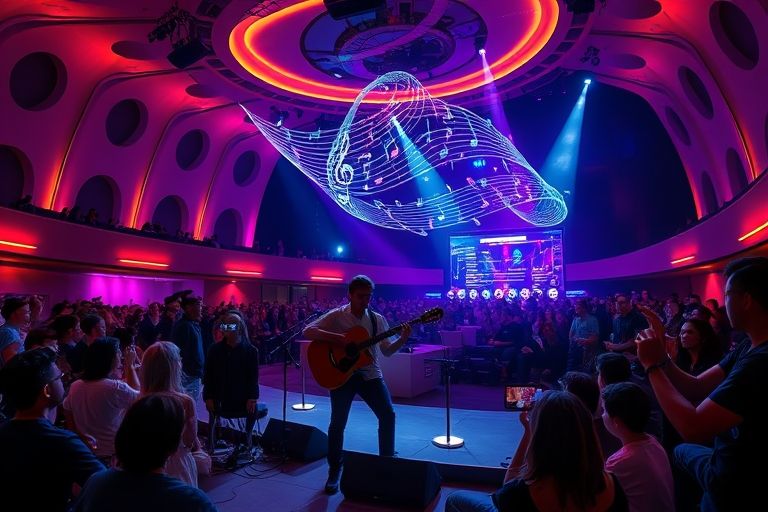Artificial Intelligence and its Impact on the Music Industry
The world of music is undergoing a significant transformation due to advancements in technology, particularly in Artificial Intelligence or AI. AI is revolutionizing the way music is created, produced, distributed, and consumed. The music industry is adopting AI in various ways to enhance creativity, minimize costs, and increase profits. In this article, we will explore the opportunities and challenges presented by AI in the future of music.
Opportunities of AI in Music Industry
1. Music Composition and Production
AI is transforming the way music is created and produced. AI algorithms can analyze existing music and generate new music that is similar in style and genre. AI-powered tools can also help musicians in composing music by suggesting chords and melodies. For instance, Amper Music is an AI-powered music composition tool that allows users to create original music in minutes. Similarly, AIVA or Artificial Intelligence Virtual Artist is an AI-powered tool that can create original music compositions in various genres.
2. Music Recommendation and Discovery
AI algorithms can analyze listener data such as listening habits, preferences, and behavior to recommend new music to users. Music streaming services like Spotify and Pandora are already using AI to provide personalized recommendations to their users. This has increased user engagement and retention for these services.
3. Music Marketing and Promotion
AI-powered tools can analyze social media data to identify potential fans of an artist and target them with personalized ads. This can help artists to reach new audiences and increase their fan base. For example, Amper Music is using AI to create original music for advertising, film, and video game industries.
Challenges of AI in Music Industry
1. Copyright and Ownership
AI-generated music raises questions about copyright and ownership. Who owns the rights to the music created by an AI algorithm? Is it the programmer who created the algorithm or the musician who used it to create music? These questions need to be addressed to avoid legal disputes in the future.
2. Authenticity and Originality
AI-generated music raises questions about the authenticity and originality of the music. Can AI create music that is truly original and authentic? Or is it just producing music that is similar to existing music? These questions need to be addressed to maintain the integrity of the music industry.
3. Human Creativity and Jobs
AI is transforming the way music is created and produced. This raises concerns about the role of human creativity in the music industry. Will AI replace human creativity in music production? Will AI eliminate jobs in the music industry? These questions need to be addressed to ensure that AI is used to enhance human creativity and not replace it.
Conclusion
AI is transforming the music industry in various ways. It is providing new opportunities for musicians and music lovers. However, it also raises important questions and challenges that need to be addressed. The music industry needs to be proactive in addressing these challenges to ensure that AI is used to enhance creativity, not replace it.
